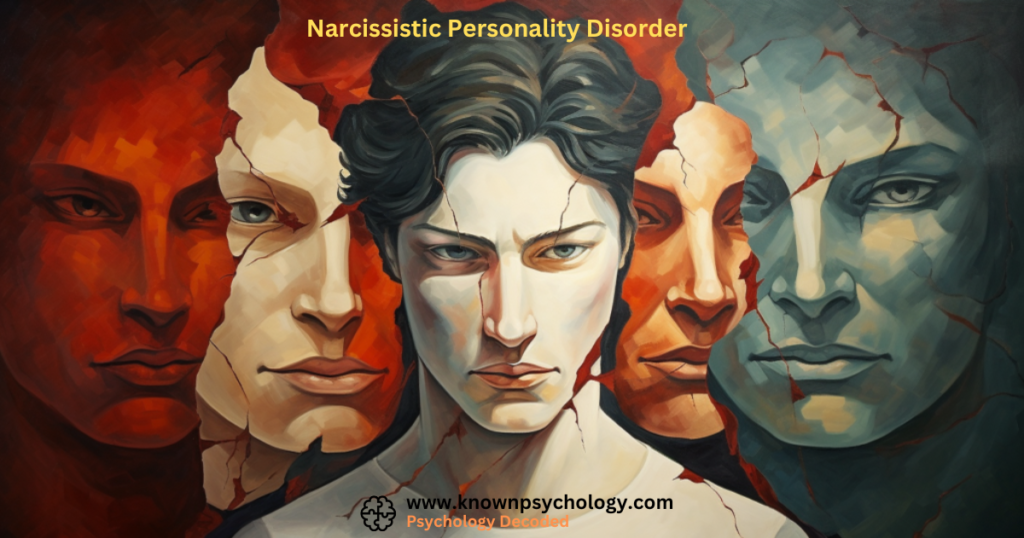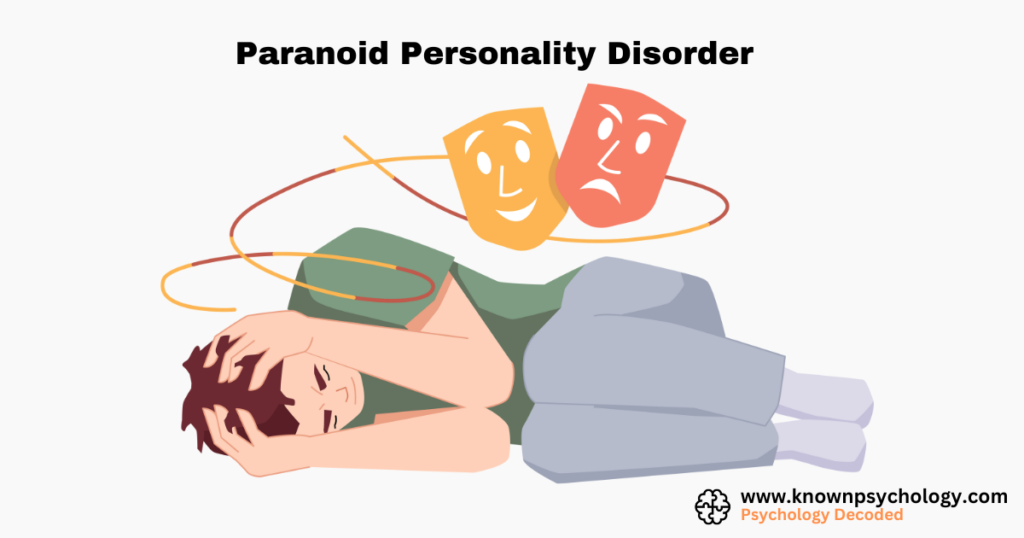Personality disorders represent a complex group of mental health conditions that significantly affect an individual’s patterns of behavior and thinking, which can diverge widely from societal expectations and can be rigid and inflexible. These enduring patterns can lead to distress and can hinder work as well as interpersonal relationships. Let’s delve into the various types of personality disorders and understand their characteristics.
Cluster A: The Odd, Eccentric Cluster
Cluster A personality disorders are marked by odd or eccentric ways of thinking. They include:
- Paranoid Personality Disorder: Individuals with this disorder generally tend to be highly distrustful of others and suspicious of their motives. They might always be on guard for perceived attacks or betrayals and can be seen as cold or emotionally detached.
- Schizoid Personality Disorder: Characterized by a lack of interest in social relationships, a tendency towards a solitary or sheltered lifestyle, emotional coldness, detachment, and apathy. Individuals with this disorder are often seen as aloof and distant.
- Schizotypal Personality Disorder: Individuals may exhibit eccentric behavior, odd beliefs or magical thinking, and may have difficulty forming relationships. They may also experience distortions in thinking and perception, including paranoia.
Cluster B: The Dramatic, Emotional, or Erratic Cluster
These disorders are characterized by intense emotions and dramatic behavior:
- Antisocial Personality Disorder: Individuals with this disorder tend to disregard or violate the rights of others. They may not conform to social norms, may repeatedly lie or deceive others, and may act impulsively.
- Borderline Personality Disorder: Hallmarked by instability in relationships, self-image, and mood, and by impulsive behavior. These individuals may experience intense episodes of anger, depression, and anxiety that can last from a few hours to days.
- Histrionic Personality Disorder: Individuals with this disorder exhibit excessive emotionality and attention-seeking behavior. They may be uncomfortable when they are not the center of attention, may use physical appearance to draw attention, or may have rapidly shifting and shallow emotions.
- Narcissistic Personality Disorder: Characterized by grandiosity, a lack of empathy for others, a need for admiration, and a preoccupation with success and power. Individuals with this disorder may believe they are uniquely special and may behave in a high-handed or arrogant fashion.
Cluster C: The Anxious, Fearful Cluster
This cluster includes disorders marked by anxious and fearful thinking or behavior:
- Avoidant Personality Disorder: Individuals with this disorder may be extremely sensitive to rejection, leading them to avoid interpersonal relationships. They may have a poor self-image and a tendency to be socially inhibited.
- Dependent Personality Disorder: Characterized by a pervasive psychological dependence on other people. These individuals may have difficulty making everyday decisions without an excessive amount of advice and reassurance from others.
- Obsessive-Compulsive Personality Disorder: Not to be confused with obsessive-compulsive disorder, this personality disorder is characterized by a preoccupation with orderliness, perfectionism, and control. Individuals may be workaholics and may be seen as rigid or stubborn.
In Sum,
Understanding these personality disorders is crucial for recognizing signs in oneself or in loved ones. It’s important to remember that while personality disorders may present challenges, with the right treatment, which often involves psychotherapy and sometimes medications, individuals can live full and productive lives.
Early detection and intervention can significantly improve the quality of life for those affected. If you suspect that you or someone you know is dealing with a personality disorder, seeking the assistance of a qualified mental health professional is the first step towards getting help. It’s through awareness, understanding, and support that we can better navigate the complexities of personality disorders.
Mariam holds an MS in Sociology with a specialization in Medical Sociology and Social Psychology. With a strong academic background and extensive research work in both fields, she brings depth and clarity to complex topics. Her writing explores the intersection of society, health, and the human mind, making academic ideas easy to grasp and relevant to everyday life.




Your point of view caught my eye and was very interesting. Thanks. I have a question for you. https://www.binance.info/en/register?ref=JHQQKNKN
Your point of view caught my eye and was very interesting. Thanks. I have a question for you.
Thank you for your sharing. I am worried that I lack creative ideas. It is your article that makes me full of hope. Thank you. But, I have a question, can you help me?
Thank you for your sharing. I am worried that I lack creative ideas. It is your article that makes me full of hope. Thank you. But, I have a question, can you help me?
I don’t think the title of your article matches the content lol. Just kidding, mainly because I had some doubts after reading the article.
Thank you for your sharing. I am worried that I lack creative ideas. It is your article that makes me full of hope. Thank you. But, I have a question, can you help me?
Your point of view caught my eye and was very interesting. Thanks. I have a question for you.
Your point of view caught my eye and was very interesting. Thanks. I have a question for you.
Your point of view caught my eye and was very interesting. Thanks. I have a question for you.
Your point of view caught my eye and was very interesting. Thanks. I have a question for you.
I don’t think the title of your article matches the content lol. Just kidding, mainly because I had some doubts after reading the article.
Thanks for sharing. I read many of your blog posts, cool, your blog is very good.
Can you be more specific about the content of your article? After reading it, I still have some doubts. Hope you can help me.
Thanks for sharing. I read many of your blog posts, cool, your blog is very good. https://accounts.binance.com/sl/register?ref=PORL8W0Z
Thank you for your sharing. I am worried that I lack creative ideas. It is your article that makes me full of hope. Thank you. But, I have a question, can you help me?
Your article helped me a lot, is there any more related content? Thanks! https://www.binance.com/register?ref=P9L9FQKY
Can you be more specific about the content of your article? After reading it, I still have some doubts. Hope you can help me.
Can you be more specific about the content of your article? After reading it, I still have some doubts. Hope you can help me.
Can you be more specific about the content of your article? After reading it, I still have some doubts. Hope you can help me.
I don’t think the title of your article matches the content lol. Just kidding, mainly because I had some doubts after reading the article.
Thanks for sharing. I read many of your blog posts, cool, your blog is very good.
Your article helped me a lot, is there any more related content? Thanks!
Thank you for your sharing. I am worried that I lack creative ideas. It is your article that makes me full of hope. Thank you. But, I have a question, can you help me?
Your point of view caught my eye and was very interesting. Thanks. I have a question for you.
Can you be more specific about the content of your article? After reading it, I still have some doubts. Hope you can help me. https://accounts.binance.com/pl/register-person?ref=YY80CKRN
Thanks for sharing. I read many of your blog posts, cool, your blog is very good. https://accounts.binance.com/en-ZA/register?ref=JHQQKNKN
Your article helped me a lot, is there any more related content? Thanks!
Thank you for your sharing. I am worried that I lack creative ideas. It is your article that makes me full of hope. Thank you. But, I have a question, can you help me?
Your point of view caught my eye and was very interesting. Thanks. I have a question for you.
Thank you for your sharing. I am worried that I lack creative ideas. It is your article that makes me full of hope. Thank you. But, I have a question, can you help me?
Thank you for your sharing. I am worried that I lack creative ideas. It is your article that makes me full of hope. Thank you. But, I have a question, can you help me?
Your point of view caught my eye and was very interesting. Thanks. I have a question for you.
Thank you for your sharing. I am worried that I lack creative ideas. It is your article that makes me full of hope. Thank you. But, I have a question, can you help me?
Pingback: Obsessive-Compulsive Disorder (OCD) - KnownPsychology
Pingback: Dependent Personality Disorder - KnownPsychology
Pingback: Avoidant Personality Disorder (AVPD)- KnownPsychology
Thank you for your interest, please feel free to ask your question—I’m here to help and looking forward to our conversation.
Can you be more specific about the content of your article? After reading it, I still have some doubts. Hope you can help me.
Thanks for sharing. I read many of your blog posts, cool, your blog is very good.
Pingback: Borderline Personality Disorder - KnownPsychology
Pingback: Antisocial Personality Disorder Signs and Symptoms
Thank you for your interest. The current series of articles is on personality disorders. You will get more few more articles in the coming week.
Your article helped me a lot, is there any more related content? Thanks!
Pingback: Schizotypal Personality Disorder - KnownPsychology
Thank you for your warm feedback! I’m delighted you’re enjoying the content. Your engagement and insights are deeply appreciated, as they enrich our discussions with valuable perspectives. I eagerly anticipate reading more of your thoughts moving forward!
Thanks for sharing. I read many of your blog posts, cool, your blog is very good.
Pingback: Schizoid Personality Disorder- KnownPsychology
Pingback: What is Paranoid Personality Disorder & How to cope with it?
Pingback: Narcissistic Personality Disorder- KnownPsychology